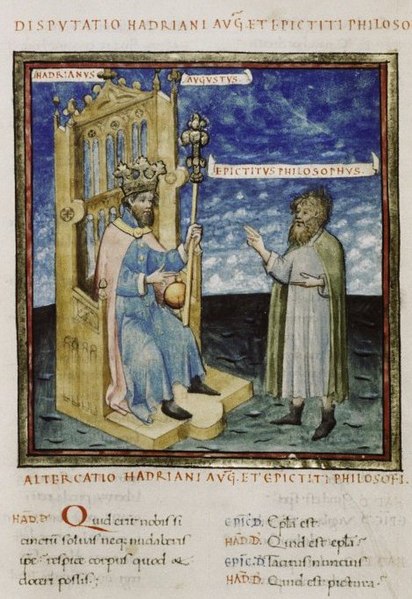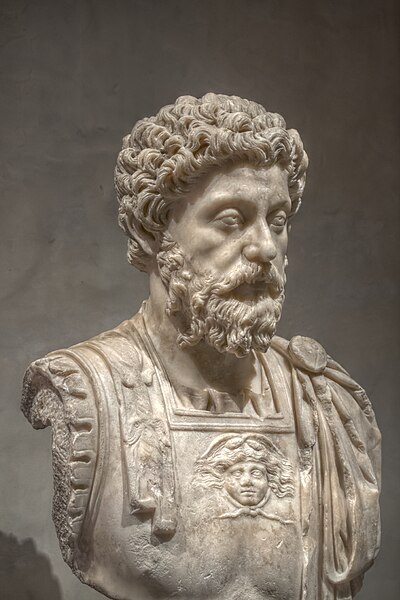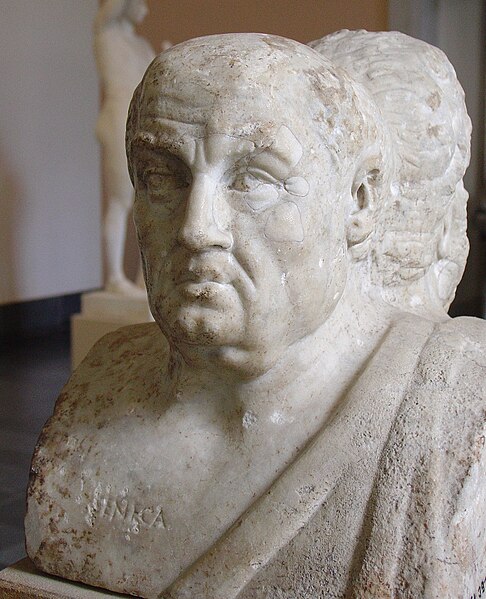Epictetus was a Greek Stoic philosopher. He was born into slavery at Hierapolis, Phrygia and lived in Rome until his banishment, when he went to Nicopolis in northwestern Greece, where he spent the rest of his life. His teachings were written down and published by his pupil Arrian in his Discourses and Enchiridion.
18th-century portrait of Epictetus, including his crutch
Roman-era ruins (the Nymphaeum) at Nicopolis
Hadrian and Epictetus, 15th century manuscript, Bodleian library
Prisoner of war James Stockdale receiving the Medal of Honor from American president Gerald Ford; Stockdale claims he was able to retain his sanity during capture by relying on the philosophy of Epictetus
Stoicism is a school of Hellenistic philosophy that flourished in Ancient Greece and Ancient Rome. The Stoics believed that the practice of virtue is enough to achieve eudaimonia: a well-lived life. The Stoics identified the path to achieving it with a life spent practicing the four virtues in everyday life: wisdom, courage, temperance or moderation, and justice, and living in accordance with nature. It was founded in the ancient Agora of Athens by Zeno of Citium around 300 BC.
A bust of Zeno of Citium, considered the founder of Stoicism
Chrysippus, the third leader of the Stoic school, wrote over 300 books on logic. His works were lost, but an outline of his logical system can be reconstructed from fragments and testimony.
Marcus Aurelius, the Stoic Roman emperor
A bust of Seneca, a Stoic philosopher from the Roman empire who served as an adviser to Nero








